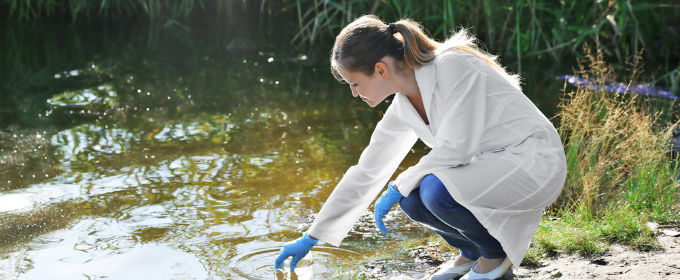Dr Cecilia Medupin is a Lecturer in the School of Earth and Environmental Sciences, at The University of Manchester and convener of Women in Environmental Sciences group. On Ada Lovelace day, Cecilia gives her eight-point plan for how to tackle inequality for women in environmental science. Including:
- It is essential to create a platform, or a social space, to ensure that regular and engagement about women and environmental issues takes place.
- Institutional support is needed to help empower women at all levels to cope with the problems of health, poverty and food insecurity.
- Promote and encourage access to lifelong learning for women who are returning back to education.
Historically, women across the globe experience discrimination in relation to gender roles, sexuality, education, employment opportunities and so on. Over the past three decades there has been some progress in women empowerment in the areas of politics and education. There has also been an increase in the enrolment of women in higher education, especially in the humanities and the social sciences. However, low representation of women is known to be a problem in science, technology, engineering and mathematics areas; both within education and employment.
Women, especially those in deprivation feel the impact of climate change and environmental degradation more than most. Goal five of the United Nation’s Sustainable Development Goals (SDGs), which focuses on women empowerment and gender equality, is an international strategy for achieving gender equality. However, in order to operationalise many international and national gender equality policies and environmental plans, environmental sensitization must be linked to gender empowerment issues. Women must be supported to take stronger initiatives in creating a sustainable world and, women in leadership positions should also support other women to advance their careers. This must occur at all levels including local, regional, national and international levels. It must also involve family units, urban and rural communities, education systems, industry and regulatory institutions.
As an initiative to identify environmental issues that border women and the local communities in the UK, The University of Manchester organised a workshop for Women in Environmental Sciences (WiES). The workshop provided a platform to raise ideas and solutions around some of the issues highlighted in the recent UN’s SDG reports. These are the eight recommendations that came out of this workshop:
- Women need to be empowered through mechanisms such as institutional support and positive discrimination at all levels to cope with the problems of health, poverty and food insecurity.
- It is essential to create a platform, or a social space, to ensure that regular and engagement about women and environmental issues takes place.
- Issues of work flexibility, diversity and inclusion must be made priorities in organisations, so that women with caring responsibilities can continue with their roles on return from such duties.
- Stronger civil participation must be encouraged and women must learn to motivate each other, and be encouraged to take initiative.
- Organisations and practitioners fostering women empowerment must continue to assess their roles in the light of “ecoproofing” including seemingly insignificant decisions.
- Research with impact must consider diverse disciplines in order to bring forth outcomes that can be applied and of benefit to the society. It is anticipated that the women’s group will feed into other environmental groups within the University and beyond for a sustainable and productive environment.
- Women must be given substantial roles in the pursuit of the SDGs, these includes encouraging inclusive decision-making processes in poor communities; encouraging women educators, care givers, and agents of social change for policy intervention.
- Promote and encourage access to lifelong learning for women who are returning back to education.
What’s next?
Participants agreed that many of the action areas identified during this event would be taken up at a follow-up event. It was further resolved that WiES will develop a link for sharing information and key developments for communication with participants and other interested parties after the event. Tackling inequality for women in environmental science is not going to happen overnight, but this group is a great start to making the changes that need to happen both within The University of Manchester and more broadly.
